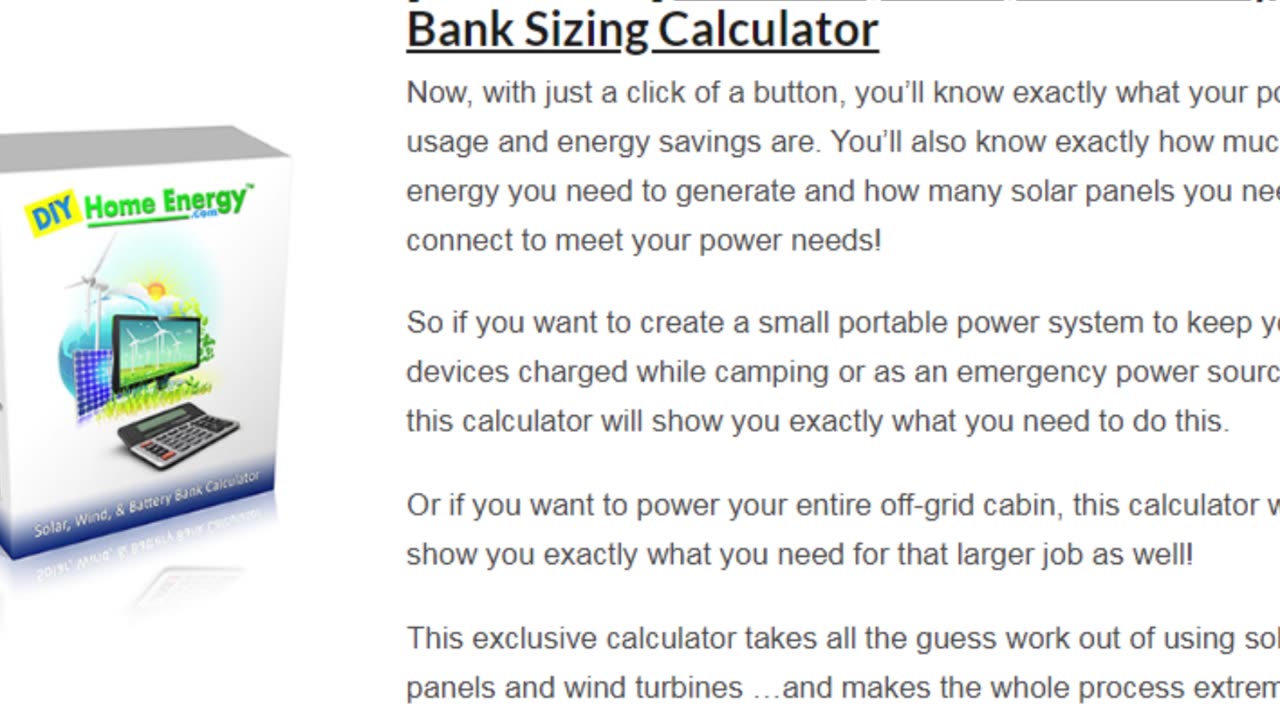Premium Only Content

DIY Home Energy Solar Panel System by Jeff Davis PDF e-book download
You can download the product at a special discount from the link here☞☞☞ https://cutt.ly/EwSVYsHt
A DIY home energy system refers to a renewable energy generation and storage setup that is designed, installed, and maintained by the homeowner, rather than a professional contractor. These systems typically include solar panels, wind turbines, batteries for energy storage, and the necessary inverters and controllers to integrate the system into the home's electrical network. By taking a hands-on approach, homeowners can customize the system to their specific energy needs and preferences, while also gaining a deeper understanding of how renewable energy technologies work.
One of the most critical questions homeowners have when considering a DIY home energy system is whether it will effectively generate and store energy for their needs. Many DIY systems include solar panels, wind turbines, or other renewable energy sources, along with batteries for energy storage. The effectiveness of these systems largely depends on the quality of the components and the design of the system. Another important factor to consider is the ease of installation. Homeowners who opt for a DIY energy system typically hope to save on installation costs by doing the work themselves. Therefore, a good DIY system should come with clear, easy-to-follow instructions and be manageable for individuals with basic handyman skills.
The DIY Home Energy System consists of several key components, including:
1. Solar Panels: These panels are used to capture sunlight and convert it into usable electricity. The guide provides detailed instructions on how to select and install the right solar panels for your home.
2. Wind Turbine: In addition to solar panels, the system also includes instructions on how to build and install a small wind turbine. This allows homeowners to harness wind power and generate even more electricity.
3. Battery Bank: To store the electricity generated by the solar panels and wind turbine, the DIY Home Energy System recommends setting up a battery bank. This allows you to store excess energy for later use, ensuring a continuous power supply.
Benefits of the DIY Home Energy System
1. Cost Savings: By generating your own electricity, you can significantly reduce your monthly energy bills. The DIY Home Energy System claims that homeowners can save up to 80% on their energy costs by implementing the system.
2. Environmental Friendliness: By relying on renewable energy sources like solar and wind power, you can reduce your carbon footprint and contribute to a cleaner and greener environment. This system allows you to take an active role in promoting sustainable energy solutions.
3. Energy Independence: With the DIY Home Energy System, you become less dependent on the traditional power grid. This means that even during power outages or emergencies, you can still have access to electricity.
While there's some maintenance involved, I enjoy being able to troubleshoot and fix any issues that arise with my DIY home energy system. It's empowering to have that level of control. While we cannot guarantee the effectiveness of the DIY Home Energy System for every individual, it offers a promising approach to reducing energy consumption and generating renewable electricity at home. By following the step-by-step instructions provided in the guide, homeowners can potentially save money, reduce their environmental impact, and gain more control over their energy usage. However, it's crucial to thoroughly research available options, consider the specific energy needs of your home, and evaluate the long-term savings potential before investing in a DIY energy system. By carefully weighing these considerations, homeowners can make an informed decision about whether a DIY home energy system is the right choice for them.
Click to visit the Diy Home Energy official website☞☞☞ https://cutt.ly/EwSVYsHt
-
 23:34
23:34
marcushouse
5 hours ago $0.49 earnedBREAKING: Starship Launch IMMINENT – But What’s This SURPRISE Flight 9 Plan?! 🚀🔥
18.5K3 -
 8:43
8:43
Film Threat
22 hours agoTHE MONKEY | Film Threat Reviews
21.5K1 -
 15:55
15:55
TSPLY
1 day agoThe Media Is Very Afraid Of FBI Director Kash Patel
23.2K22 -
 6:57
6:57
Cooking with Gruel
18 hours agoMake Cheese Great Again
13K10 -
 5:17
5:17
Mrgunsngear
21 hours ago $5.20 earnedPresident Trump Has Appointed A New ATF Director
21.7K23 -
 48:17
48:17
Athlete & Artist Show
8 days ago $0.01 earnedS5E1: Chucky Announces First Kid, 4 Nations Face Off, and more!
10.5K -
 38:30
38:30
hickok45
6 hours agoSunday Shoot-a-Round # 269
41.3K12 -
 1:39:55
1:39:55
Squaring The Circle, A Randall Carlson Podcast
1 day ago#040 Humanity's Expansion Into The Cosmos: A New Age - Squaring The Circle
23.7K4 -
 12:54
12:54
ariellescarcella
16 hours agoYou're NOT Queer, Just Annoying And Boring
15.7K9 -
 18:57
18:57
Fit'n Fire
12 hours ago $0.03 earnedA PDW That Thumps -- Stribog SP45A3 45ACP
18.8K1